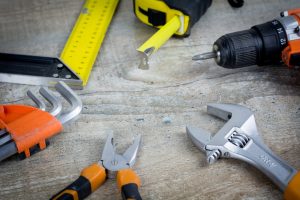18 Reasons to Hit Pause on Your Home Buying Dreams
Just when you think you’ve scrimped and saved enough for that hefty down payment, the reality of home closing costs, insurance, maintenance, and that dreaded emergency fund slaps you in the face. But hey, don’t get me wrong—I’m not here to squash your dreams of homeownership under the American sun. Just suggesting you might want to hold your horses until you’re absolutely sure you can juggle those extra financial balls.
Let’s talk about the sneaky expenses that creep up beyond your mortgage. You might have your monthly payment down to a fine art, but did you factor in the property taxes, insurance, homeowner association fees, and the inevitable upkeep? These aren’t just pennies from heaven; they add up fast. Being in the know about the full financial spectacle of owning a home ensures you don’t get knocked sideways by unexpected bills.
And about those sky-high credit card balances—when your debt starts resembling Mount Everest, it’s probably a good time to rethink your spending strategies. High balances can choke your budget, making it tough to manage another hefty commitment like a mortgage. Plus, let’s not forget how this could play havoc with your credit score, potentially souring your mortgage terms. Before you dive headfirst into real estate, why not strategize on knocking down some of that debt?
No emergency fund? Picture this: an unexpected job loss or a medical emergency without a financial safety net. Homeownership comes with its own set of surprises like roof repairs or sudden plumbing disasters. Without a stash of cash set aside, you could find yourself in a real pickle. Experts aren’t whispering sweet nothings when they recommend having at least six months’ worth of expenses saved up; it’s solid advice.
Fear of commitment isn’t just for relationships—it applies to real estate too. The thrill of hopping to new locales or grabbing career opportunities across the states doesn’t quite align with the home-buying game, which demands some level of permanence. If the thought of staying put gives you the jitters, maybe keep the home buying on ice and savor the flexibility of renting a little longer.
Living paycheck-to-paycheck? Add a mortgage into that mix and watch the financial pressure cook up. Homeownership isn’t just about swapping rent for a mortgage; it’s about maintenance, higher utilities, and those out-of-the-blue repairs—all nibbling away at your already stretched budget. Take a hard look at your expenses, trim the fat where you can, and ensure your budget can breathe a little.
Uncertain about your job? In today’s whirlwind job market, the only constant is change. Tying yourself down with a property when your professional life is a spinning top might not be the best move, especially if a sudden relocation is on the cards. Make sure your job and income are as stable as they can be, or that your savings account can take the hit.
Dreaming big is great, but when your budget is screaming for mercy, it might be time to get real. Those mansion-sized dreams need to be scaled down to what you can actually afford. Mortgage pre-approvals can be a reality check, helping you shop within your means and keeping those financial nightmares at bay.
A low credit score can slam the doors on favorable mortgage rates, costing you more in the long haul. Keep tabs on your credit report, pay those bills on time, and whittle down your debts. Improving your credit score isn’t just good hygiene—it’s essential for better homeownership prospects.
Overwhelmed by belongings? Moving house isn’t the time to star in your own episode of a hoarding reality show. Use this as a chance to declutter and really think about what space you need. Plus, moving less stuff could mean shaving off some moving costs.
Not handy around the house? Home maintenance isn’t just a chore—it’s a necessity. While YouTube tutorials can cover the basics, some jobs need the pros. Setting aside a maintenance budget and getting familiar with routine tasks can keep your home in top shape without draining your wallet.
Trying to time the market? Good luck with that. The housing market is a wild beast influenced by a cocktail of unpredictable factors. Rather than playing a waiting game, focus on your personal and financial readiness.
No budget? No deal. Owning a home means dealing with maintenance, taxes, insurance, and more. These costs can derail your finances faster than you can say “foreclosure” if you’re not prepared. Get detailed with your monthly budget and set some realistic savings goals.
Feeling peer pressure? Buying a home because it seems like the next checkbox on the adulting list can lead to regret. Everyone’s journey is different—make sure you’re making this commitment for the right reasons, not just keeping up with the Joneses.
Cold feet over interest rates? A solid financial foundation can withstand minor fluctuations in mortgage rates. Don’t let the fear of rising rates deter you—if you’re financially healthy, a slight increase shouldn’t throw you off course.
Navigating the real estate maze can be daunting, especially for first-timers. From decoding mortgage rates to understanding contract terms, consider consulting with a real estate pro or taking a crash course in home buying.
Still relishing your rental freedom? If the lack of maintenance headaches, the ability to up sticks at a moment’s notice, and the flexibility to adapt to life’s twists and turns sounds like your cup of tea, then perhaps the homeowner’s life isn’t calling your name just yet.
Family dynamics in flux? Big life changes like a growing family or moving for better job prospects can deeply influence your housing needs. Let the dust settle before you make a decision that might soon need revising.
Facing the Everest of down payments? If saving up feels like scaling a mountain, take a step back. Review your savings strategies—consider automation, explore high-interest options, or seek financial advice. There’s no shame in taking your time.
Eyeing a potential drop in housing prices? Market volatility can be a pain, but it can also present opportunities. If forecasts suggest a dip in prices, keeping an eye on those markets might be wise.
Need a budget? Beyond just making sure bills are paid, a well-crafted budget helps you plan, save, and ensure your spending aligns with your priorities. It’s not just about survival—it’s about setting the stage for financial wellbeing.













Post Comment